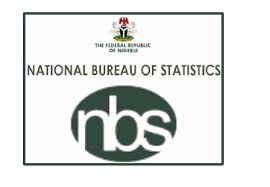Nigeria’s Consumer Price Index, CPI, dropped 15.13 per cent in January 2018, representing the 13th consecutive month the growth rate has maintained its decelerating trend.
The CPI measures the composite changes in the prices of consumer goods and services such as transportation, food and medical care purchased by households over a period.
The National Bureau of Statistics, NBS, stated in its latest Inflation Report published today that the latest rate indicated a 0.24 per cent drop from the rate of 15.37 percent recorded in December 2017. The inflation rate was 18.72 per cent in January last year.
According to the nation’s official statistics producer and custodian, increases were recorded in all 12 Classification of Individual Consumption by Purpose (COICOP) functions that yielded the Headline Index used in the report.
The Bureau reported that on a month-on-month basis, the Headline index rose by 0.80 percent the month under review, or about 0.21 percent points higher than the rate of 0.59 percent recorded in December 2017.
The percentage change in the average composite CPI for the 12-month period ended January 2018 over the average of the CPI for the corresponding period was 16.22 percent, or about 0.28 percent point lower from 16.50 percent recorded in December 2017.
A further decomposition of the CPI on urban and rural bases indicated that in the month under review, urban inflation rate rose by 15.56 percent from 16.78 percent in December 2017, compared with the rural inflation rate, which declined to 14.76 percent from 15.02 percent recorded in December 2017.
The NBS clarified further that on month-on-month basis, the urban index rose by 0.83 percent in January 2018, up from 0.66 percent recorded in the preceding, while the rural index also rose by 0.77 per cent in January 2018, representing 0.23 points increase when compared with 0.54 per cent in December 2017.
The corresponding 12-month year-on-year average percentage change for the urban index stood at about 16.55 per cent in January 2018. This is less than 16.92 per cent reported in December 2017, compared with the corresponding rural inflation rate in January 2018 which dropped to about 15.89 percent from about 16.10 per cent recorded in December 2017.
The report said the annual food price index and food price pressure continued into December though generally at a slower pace year-on-year.
The Food Index stood at about 18.92 per cent (year-on-year) in January 2017, down from the rate recorded in December (19.42 percent).
The implication is that Nigerian consumers were paying less for food during the month than they did in the previous month.
On a month-on-month basis, the food sub-index 0.87 per cent in January 2018, down by 0.29 per cent from 0.58 per cent recorded in December.
The average annual rate of change of the food sub-index for the 12-month period ending January 2018 over the previous 12-month averaged 19.62 per cent, or 0.07 per cent points from the average annual 19.55 percent rate of change recorded in December 2017.
The report also showed that the rise in the food index was caused by increases in prices of imported food as well as bread and cereals, milk, cheese and eggs, vegetables, fish, coffee tea and cocoa, meat, potatoes yam and other tubers and oil and fats.
Also, the Bureau reported that The “All Items Less Farm Produce” or Core sub-index, which excludes the prices of volatile agricultural goods, stood at 12.10 percent points during the month under review, the same rate recorded in the preceding month.
While the report showed that the core sub-index increased by 0.68 per cent in January 2018 was higher from 0.51 per cent recorded in the preceding month, it also indicated that the average 12-month annual rate of change of the index was 13.01 per cent for the 12-month period ending January 2018.




